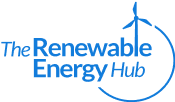Building backlinks is a fundamental step of a successful outreach strategy. If a good number of high-authority domains refer to your pages, you significantly increase the prospects of improving your SERP ranking as well as your site’s authority.
Google utilizes multiple qualifiers when ranking SERPs, one of them being the number of reliable links from prominent sources that refer to your content. What you need to understand about this system is that it prioritizes trustworthy publishers and relevant content.
A successful link building campaign should rely on:
- Producing relevant content;
- Controlling the quality of what and how you post;
- Develop combined strategies for building links to grow backlinks naturally.
All these rules point to the unfortunate fact that link building is not only expensive but usually takes a lot of effort, which means you can’t just improve your ranking overnight.
In many cases, outsourcing this process is more affordable than doing it in-house, mostly because you won’t need to create a whole new department with its own needs and ecosystem.
But even hiring an agency to help with your campaign comes with significant costs. Which brings us to the main question: how exactly should you approach link building from a financial standpoint?
Link Building Prices
The overall cost of link building is determined by a combination of factors: link quantity, their quality, your industry, and the scope of your campaign.
It’s always easier to calculate your estimates based on prices for individual links, which are directly tied to how you plan your content output. The potential price range starts at about $100 per link and goes all the way up to $1,500 and above.
Average link expenses per month can range between $5,000 and $20,000—a number that is typically affected by other marketing campaign operations and additional metrics related to the objective.
Keep in mind that these prices reflect “good” links and buying practices that aren’t related to toxic backlinks. This means that buying cheap backlinks is not a viable strategy. These types of links won’t grant you higher visibility. They also won’t improve your authority by way of sheer quality.
Boosting your ranking with the help of link building primarily means buying or generating links of good quality that Google will interpret as useful to particular queries. In other words, guest posting alone won’t help you, especially if it comes from link farms.
What Are Good Links?
To boost your ranking, your backlinks must be consistent in quality. If you want to simply buy cheap bad links in bulk in order to somehow out-win competitors with numbers—well, in short, it won’t work.
A good link must be:
- Relevant;
- Trustworthy;
- Organic.
When generating links, be careful of how you handle anchor text—keep it as natural as possible and avoid using too many PR pitches and main target keywords, otherwise it will set off red flags for optimized anchors. The more your links are natural, the more traffic and, therefore, brand name and logo design recognition you will get.
For example, if you want to add a link to a crypto bot, you need to surround it with text about trading, stocks, and finance to make it look native.
Additionally, authority score plays a huge part in the effectiveness of your backlinks. Make an effort to attract authoritative publishers and work up to building a valid backlink pyramid.
What Determines Link Building Prices?
The value of links is highly individual and hinges, above all secondary qualifiers, on your industry. Every professional field exists in the broader context of performance ranking, specifically how competitive your field is in terms of search queries.
There is no universal way of classifying industries into specific pricing tiers, but you can generally outline the three main groups based on the labor needed to improve your ranking via backlinks:
- Low-end ($100-350): Backlinks that are relatively inexpensive due to the lower levels of competition in the industry, for example, education, non-profits, and gaming;
- Middle-end ($350-600): Mid-range links that are more or less averagely priced based on the moderate levels of competition for rankings like SaaS, tech, and legal market;
- High-end ($600-1500): More expensive links that require more intricate content development and input, for instance, gambling and the financial sector.
In addition to your business type, the budget is also defined by the following factors:
- Link authority: Backlinks will be more effective and, in turn, more expensive if they come from publishers with higher authority scores. Their reputation and influence are integral to the effectiveness of your links. And unlike cheaper forms of link building like guest blogging, authority domains will demand higher rates for their efforts;
- Content: Well-researched and competently written content tends to be more expensive, as it involves more intensive and dedicated labor on the publisher’s part. Never choose unrefined quantity over quality, but keep in mind that when it comes to creating more good backlinks, content’s length matters just as much—assuming it remains high in quality throughout;
- Campaign duration: Dedicated campaigns are often more affordable with certain agencies. It might cost you less in the long run if you commission a bundle rather than a single link, i.e. buying 5 articles for 5 links amounting to $2,000 compared to a one-off article that costs $600.
How DR and DA Impacts Cost
Aside from the aforementioned factors, link building agencies also implement the pricing model that relies on Domain Rating (Ahrefs DR) as well as Domain Authority (Moz DA).
Both DR and DA are third-party metrics, so estimating their true effectiveness for the value is somewhat problematic, especially considering that Google doesn’t take DA into account. That said, these two indicators are routinely used for evaluating the website and link quality across the industry.
Vendors can charge from $100 to $1,500 for links with high DR/DA scores:
- DR 40: $300-350
- DR 50: $350-450
- DR 60>: $450+
When buying links based on this metric, be aware of cheaper offers that sound a little too good to be true. Unnaturally low-priced links with supposedly high DR/DA are more likely to come from link farms, which essentially renders them worthless for SERPs.
If you aren’t buying a bundle for a specific campaign and instead need to purchase one-time links, always research the authority of these vendors.
Domain Rating
With DR, Ahrefs employs a 1-100 scale system to measure the strength of individual URLs and their complete backlink profiles.
High DR could be an indicator of websites that might yield organic search traffic based on their engagement, relevance of content, search words optimization, and other factors.
Having a clear picture of how specific pages perform on DR score can help develop a more effective link building strategy by highlighting more relevant URLs and filtering out bad links.
It’s important to remember that the DR score is by no means the defining factor for a website’s potential and shouldn’t be used as a sole indicator.
Domain Authority
Moz’s DA is designed to predict a website’s performance on SERP on a score of 1 to 100. Note that this score denotes the ability of a page to rank based on multiple factors.
These qualifiers aren’t fully disclosed, but they do include attributes like domain age, outgoing/incoming link volume, linking root domain, quality and quality of backlinks, spam score, and other features subject to penalties by search engines.
As you can see, it won’t make sense to base your assessment solely on the DA score, as it’s only there to showcase ranking potentiality on SERP.
Building Links In-House vs Agency Method
If you don’t want to rely solely on agencies and are set on doing it in-house, brace yourself for some serious expenses. Building a team takes time, effort, money, and serious dedication.
After all, it’s not a one-off project—you will be responsible for maintaining the team and investing in its further growth, which includes training, management, prospecting, strategy, outreach, and more.
In-House Team Costs
The size of an SEO team is a highly individual thing, as every business has its own goals and operates within the parameters of a specific industry, requiring various levels of organizing.
An in-house team can be effective even with 4 or 5 people, while larger ventures will require teams with over 100 members. Paying and accommodating your team is naturally expensive.
Assuming that you plan to produce 10 links in one month, the overall cost will likely start at $4,500-5,000 per month for labor plus just as much for adjacent expenses. This sets the average link price at about $180-200 per link.
Keep in mind, these numbers are extremely approximated as not all links are the same. Their individual pricing hinges on their quality and the amount of labor that goes into building it:
- Guest posts: $100-$300;
- Resource pages: $300-$750;
- PR backlinks: $750+;
Again, it’s important to understand that these costs are hypothetical and are meant to give you a rough idea of what to expect going into this.
To have a more complete idea of the total average per month (and year), we need to consider basic expenses that sustain a team:
- Link budget: $2,000+/mo;
- Manager: $3,000-6,000/mo;
- Assistant: $1,250-2,500/mo;
- Guest writer: $4000/mo;
- Software: $500-1,500/mo.
Link budget
When organizing campaigns, it’s essential to allocate a monthly budget specifically for backlinks. Purchasing links is essential for a successful campaign, regardless of the method you employ to build links on the regular basis. It’s difficult to establish a conclusive bottom margin for the budget given the market diversity and specific campaign needs, but let’s say you will be spending $2,000 per month at the very minimum.
Managers
A link building team must have an experienced manager at the helm who can successfully organize the team and conduct campaigns. Full-time managers based in the U.S. are more expensive, charging $4,000-6,000/mo or $50,000-80,000/yr, but you also shouldn’t expect to pay anything less than 2,500/mo or $30,000/yr for managers based outside the U.S., Canada, or the EU.
Assistants
A day-to-day organization is typically managed by link building assistants. These tasks range from outreach efforts and prospecting to scheduling and task customization. Even if you hire out of the U.S., be prepared to pay at least $1,250/mo, though in general, these rates tend to be higher based on location.
Guest writers
To nurture your campaign consistently, you will definitely need third-party contributors. With guest posts, it’s important to emphasize quality. The content itself must fit the necessary criteria for publishing, and many authoritative publishers are extremely rigorous about their quality control.
In the United States, an average experienced writer charges $0.20 per word, adding up to about $400 per 2k words of content. Assuming you’ll be doing 10 posts a month, this will cost you $4,000 in total. Again, you can try saving money by hiring outside the U.S., but even then the rates will range from $500 to up to $2,000.
Software
The fact that you’ll need to get an Ahrefs subscription (minimum $500/mo) goes without saying. In addition, you will need to invest in email finders, monitoring tools, and outreach support to improve engagement. Without Ahrefs, you’ll be paying $500/mo at the very minimum. But to add it all up, your total will likely be $1,000-1,500/mo.
Overall cost per month: $11,000-16,000;
Overall cost per year: $132,000-192,000.
Link Building Agency Costs
If you don’t have the resources to build and maintain a permanent in-house team, your best option is to outsource your link building through an agency.
In general, outsourcing marketing is undeniably more cost-effective, but it still requires considerable forethought. In order for your campaign to be effective, it’s important to work with reputable vendors that generate quality results.
Link building companies
It’s impossible to provide a single specific figure for these vendors as their rates fluctuate based on their specialty, your business type, industry, and other requirements for your campaign. In general, the monthly cost may range from $3,000 to $20,000.
Content marketing companies
The development and delivery of complex campaigns from scratch are undoubtedly costly. On average, an agency of this type will charge you between $15,000 and $30,000 for a project. Companies based in major U.S. cities will be more expensive, but even with cheaper agencies, you will be expected to pay $350-1,500+ per link. Remember that these companies can’t promise the output will be 100% quality.
Freelance experts
Freelancers adjust their rates based on experience and market demand, typically charging $50-150 per hour plus retainers for bigger campaigns. That said, it will be your job to oversee other aspects of the campaign, including software, guest writers, link purchases, and more. Before choosing to work with freelancers, remember that independent professionals might not have the necessary access to the same resources that big agencies do.
How Many Backlinks Do You Need?
In Google’s terms, the relevancy of a specific page in relation to the original query is determined by its true usefulness.
The ranking of each result is measured by over two hundred factors, with the main focus falling on the content itself, the number of backlinks, and the Hummingbird AI algorithm in combination with its updates such as RankBrain and BERT. In addition, priority often shifts to mobile-friendly layouts, the use of secure protocols, and load speed.
To truly win at ranking, your optimization must focus on generating content that satisfies user expectation while reinforcing it with topical backlinks. Of course, the links will only make any positive impact on your searches if they come from sources with high authority rankings, are of consistently good quality, and are utilized naturally.
If you want to move ahead of the close competitors that outrank your pages, analyze how your DA and DR scores compare to them. Target the ones that have roughly the same domain authority and the same number (or fewer) of backlinks.
To roughly summarize:
- DR lower than your competitor means more backlinks;
- DA higher than your competitor means fewer backlinks;
- Raising overall DR to at least 70 requires between 100-250 links based on your current score.
Again, this is not a universal formula. You will always need to tailor your approach based on the situation.
However, when it comes to link building, there are a few basic rules that you should stick to no matter what:
- Buy links from publishers with high authority;
- Look for links relevant to your content;
- Work with domains in related industries/publishers with significant audience overlap;
- Generate content that’s informative and useful;
- Focus on email outreach;
- Choose quality links over high numbers;
- Apply link building in combination with other methods of outreach;
- Research vendors before making any deals.
Conclusion
The main factor you should consider when developing your pricing strategy for backlinks is the method of acquisition.
Whether you choose to create backlinks in-house, through an agency, or with freelance support, always pay attention to the quality of referring domains and be aware of cheap offers that make unrealistic promises.
Focus on relevant links rather than cheap link farm posts, choose specialized agencies, and do your best not to rely on link building as your only strategy for optimization. And of course, do your research into the competition in order to establish priorities and plan your budget




























